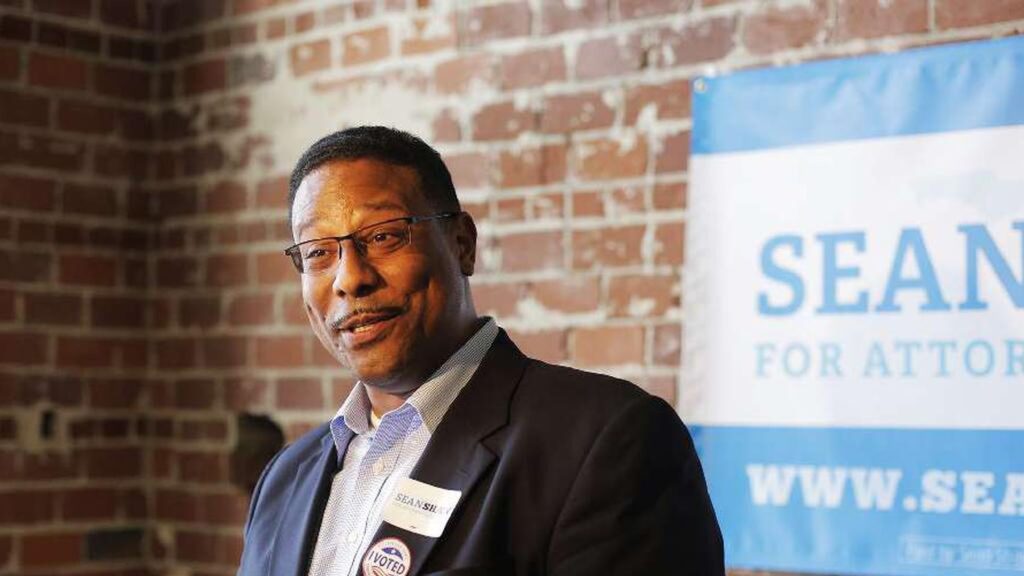OPINION: Voting amendments will boost underrepresented voices in Florida

Former Florida Rep. Sean Shaw presented three separate amendments to the state constitution May 30. These amendments would increase ease of voting in Florida through automatic registration and give felons and last-minute voters a chance to register up until Election Day.
The first amendment would have Florida join states like California and Rhode Island in automatically registering to vote any citizen renewing or updating their driver’s license. The second would allow Floridians to register to vote on Election Day or during early voting at their voting centers, joining 20 other states that have passed similar policies.
The third amendment would undo a provision passed by the Florida Legislature in 2019 that requires felons to pay off outstanding court fines, fees and restitution before registering to vote.
Shaw’s proposed amendments will make it easier for groups that are underrepresented in politics like college-aged students, low-income citizens and felons to vote, allowing them to advocate for their interests in political representation and policy.
The first amendment aims to remove some of the inconveniences associated with voting and may encourage these demographics to exercise their civic duty as Americans.
Many groups are absent from voting booths. College-aged students, low-income individuals and racial minorities have significantly lower turnouts than other groups. The college-aged demographic of people ages 18-24 is the least represented age demographic. Only 51% of those surveyed voted in 2020 as opposed to 74% of voters ages 65 and older, according to the 2020 census.
Streamlining the registration process by automatically registering eligible citizens to vote during department of motor vehicles transactions would increase the ease with which students can vote.
The second and third amendments would encourage impoverished Floridians as well as previously incarcerated felons to vote by reducing cost and time barriers to get to voting booths.
Low-income individuals seem to have difficulty making it to the voting booths. Only about 48% of individuals below the poverty threshold voted in the 2020 election compared to 85% of individuals in the highest income bracket, according to the census.
Many who were previously incarcerated also fall into lower income brackets. Incarcerated people in 2020 had a median annual income of $19,185 prior to their incarceration, which is 41% less than non-incarcerated people of similar ages, according to the Prison Policy Initiative. This can be a barrier when trying to pay off extensive legal fees associated with a felony charge.
As of 2020, 23.3% of Black voters are disenfranchised in Florida due to their felony debt status, according to The Sentencing Project, a nonprofit that advocates for people with a criminal record. This is more than any other racial group in Florida.
By giving felons the right to vote regardless of debt status, it would be removing another systemically racist and classist restriction on Florida groups who face difficulties exercising their right to vote and may see an increase in the booth turnout next election.
Shaw’s proposed amendments come amid continued allegations about widespread fraud in the 2020 election, which former President Donald Trump claimed he rightfully won. Policymakers in several states have tried to address his claims by proposing laws restricting methods to ease voting, like vote by mail and ballot drop boxes.
Gov. Ron DeSantis signed SB 90 on May 6 which restricted voting in Florida. This bill limits the use of ballot drop boxes and requires more identification requirements for voters requesting an absentee ballot. It also increases the rate at which voters must request absentee ballots, from every four years to every two.
This bill triggered a lawsuit against Secretary of State Laurel Lee by coalitions including the League of Women Voters of Florida, Black Voters Matter Fund and the Florida Alliance of Retired Americans because of its apparent discrimination against specific groups who use drop boxes and mail-in ballots most frequently.
“These voting restrictions are part of a national movement to create barriers for Black and brown voters and an effort to deny ready access to the ballot box,” said President of Florida’s NAACP chapter Adora Obi Nweze in a statement from the NAACP Legal Defense Fund. “In the midst of a pandemic, 11 million Florida voters cast ballots including a significant number of Black voters, with more than 500,000 voting by mail.”
Despite these actions from state legislators, some institutions are taking steps to ease the hassle of voting in alignment with Shaw’s initiatives. USF partnered with the Hillsborough County Supervisor of Elections to open early voting sites on campus during the 2020 election, according to an October 2020 article from The Oracle.
It’s no easy feat to push an initiative like this onto the ticket. Sponsors of a constitutional ballot initiative have to collect nearly 900,000 signatures and raise millions of dollars to affirm public support for the amendments.
Senate Bill 1890, which DeSantis signed into law May 7, limited individual contributions to ballot initiatives to $3,000 each. With the average 2020 petition cost nationwide totaling $2.1 million, according to Ballotpedia, this could be detrimental to the success of any ballot initiative.
There is hope to overturn this law. This contribution cap has received pushback from the American Civil Liberties Union and Shaw’s political committees, who filed a lawsuit in May that questions the constitutionality of this law. If the lawsuit is successful, Shaw’s amendments would be able to receive more financial backing and hopefully end up on the next election’s ballots.
For democracy to work, all citizens should have equal opportunity to vote. These amendments will give demographics with difficulty making it to the polls a fighting chance to exercise their civic duty and prioritize their public interests.








